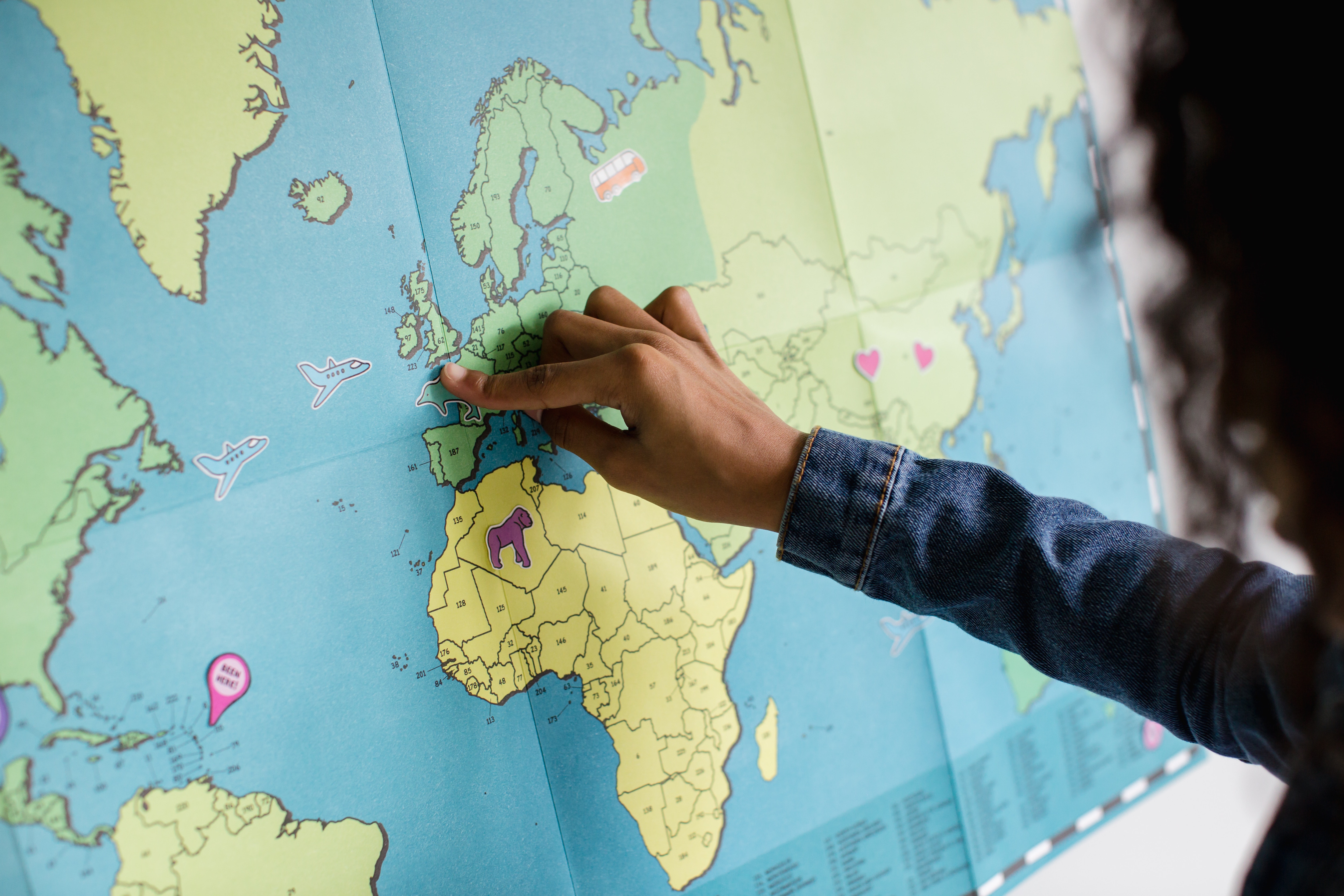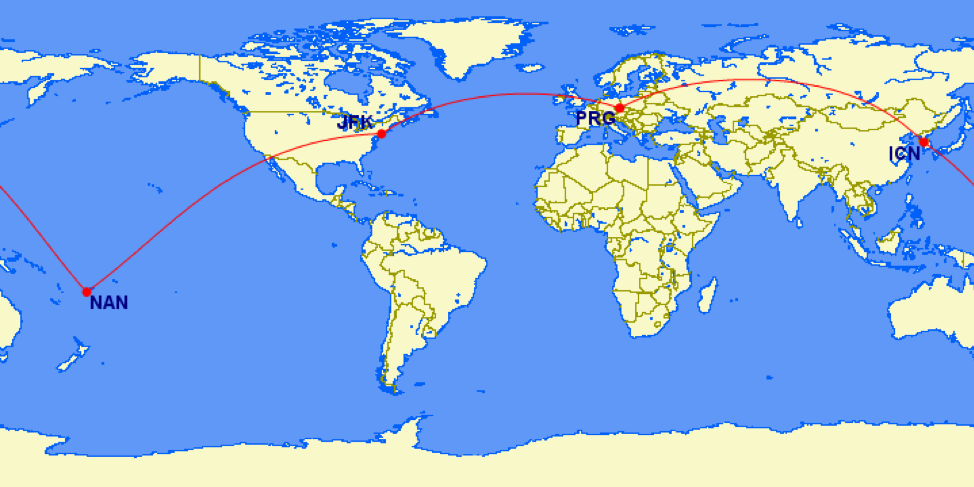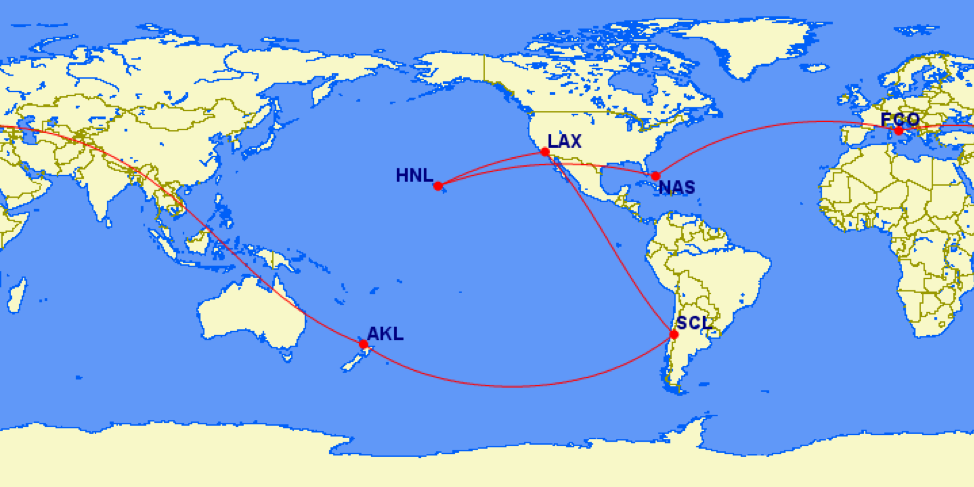Round-the-World tickets are perfect for travelers looking to make a bunch of stops in many countries. They aren’t always the most economical option, though, and are generally far less flexible than an itinerary booked on separate legs.
If you’re making a few stops, it can sometimes be cheaper to book one-way legs separately. When the price is roughly equivalent or the same, it’s advisable to book your award flight as a series of one-ways instead.
Also, unlike a true RTW ticket, piecing the trip together separately is less demanding. Whereas most Round-the-World programs require all flights to be booked at once, a traveler can piece together one-ways at leisure, leaving time to decide on the small details. This method also avoids many of the restrictions on distance, the direction of travel, segments, or stopover that come with a true RTW ticket.
This is the third of a four-part series exploring Round-the-World tickets, their value and best practices and use cases.
- When Does It Make Sense To Book a Round-the-World Ticket
- Which Airlines Offer Round-the-World Tickets; What are the Rules
- Alternatives to Booking Round-the-World Tickets (Do-It-Yourself Guide)
- How to Book Round-the-World Tickets for Maximum Value
Let’s look back at our comparison chart, which provides a framework for a four-stop itinerary.

In most cases, our six stop itinerary would be less when purchased as a round-the-world ticket.
Even in cases when the mileage might be similar, there are flexibility advantages to booking these flights one at a time, rather than in a Round-the-World itinerary.
There are some very affordable “Do-It-Yourself” redemptions that beat — in some cases by a lot — Round-the-World ticket prices.
Of course, booking an around-the-world ticket can be complicated and time-consuming, regardless of whether you use a RTW program or book legs separately. If you need help or want to save your time for other pleasantries, consider using an award planning service like Juicy Miles or Points Pros.

Achieve your bucket list with a DIY round-the-world. Image by Lonely Planet on Unsplash
The ‘Just the Highlights’ Round-the-World
For 100,000 Starwood Preferred Guest Points, combined with 38,000 Chase Ultimate Rewards points, you can visit Europe, North Asia, and Oceania in business class. You can spend as much as time as you want at each destination and use cheap air tickets (or Avios redemptions!) to explore each region further.

Image by Great Circle Mapper
Here is how this itinerary works.
To start, 35,000 of our SPG points are going to Asiana. That will net us 40,000 Asiana miles, enough to book us from New York Kennedy (JFK) to a city in Europe on LOT Polish Airways (or another Star Alliance airline like Lufthansa or SWISS, but with higher fare add-ons). It’s easy to search for open LOT award seats using either united.com or aeroplan.com award searches.
We will transfer another 21,000 Starwood Preferred Guest points to Etihad, netting 25,600 Etihad Guest miles, enough to get us in business class from Prague, Czechia (PRG) to Seoul (ICN) on CSA Czech Airways. Use a tool like expertflyer.com, or call Etihad Guest, to find available business class seats.
Transfer 38,000 Chase Ultimate Rewards points to United to fly business class from Seoul (ICN) to Fiji (NAN) on Asiana and Air New Zealand
Finally, 45,000 Starwood points will go to Alaska Airlines, netting us 55,000 Alaska Mileage Plan miles. We can use alaskaair.com to book Fiji Airways from Nadi (NAN) back Los Angeles or San Francisco and then connect on an Alaska flight to New York City or onward.
This itinerary takes advantage of the United sweet spot on redemptions to Oceania (much cheaper than Australia/NZ) and the hidden gem that is Etihad’s partnership with Czech Airways.
The ‘See it All for Less’ Round-the-World
If you prefer to save miles by flying economy, then this next itinerary shows how to strategically take advantage of distance-based redemptions on Avios to travel over 35K miles for only 67,500 Avios points and 73,000 SPG points. On this itinerary, you’ll visit Hawaii, the Caribbean, Europe, New Zealand, and South America.

Image by Great Circle Mapper
We can use 13,000 Amex Membership Rewards or Chase Ultimate Rewards points to score 12,500 British Airways Avios. That is sufficient to fly from the West Coast of the United States to Hawaii (HNL) on American or Alaska Airlines.
We can transfer 12,500 Starwood points, netting 17,500 Asiana miles, enough to fly from Honolulu to Nassau, the Bahamas on a Star Alliance airlines (most likely United). Strangely, Asiana treats Hawaii and the Caribbean as the same region, thus the incredibly low price.
We can transfer another 25,000 Chase or Amex points to British Airways to fly from Nassau (NAS) to Rome (FCO) on British Airways. Beware, there will be a fare added to this portion of the trip.
We can transfer 40,000 Starwood points to Lufthansa Miles & More, netting us 50,000 total points. This gets us from Rome (FCO) to Auckland, New Zealand (AKL) on any combination of Star Alliance carriers, including Air China, Austrian, Lufthansa, Thai Airways, SAS, Singapore and SWISS. We can mix and match. Again, use Lufthansa’s Miles & More website, United or Aeroplan to search for the open seats.
Now, another 30,000 Amex or Chase points to British Airways gets us from Auckland, New Zealand (AKL) to Santiago, Chile (SCL) on LAN.
For our last leg, we move 20,000 Starwood points to Alaska Airlines, to fly Chile (SCL) to the USA (e.g. JFK, ATL, LAX, etc.) on Delta, AeroMexico, or LAN Chile.
While the above itinerary is all economy, you could always opt to mix in some business class redemptions for particularly long legs or to try out premium economy cabins on some.
Other considerations when evaluating round-the-world options
Besides required mileage, there are other factors to consider when deciding between a do-it-yourself trip like these or a true round-the-world itinerary.
A DIY itinerary is typically much more flexible than a true round-the-world. DIY itineraries can mix and match flights across airlines, including those not in an alliance (e.g. Virgin and Etihad).
Unfortunately, this flexibility comes with a cost: change fees. A round-the-world itinerary is like a line of dominos and changing one flight often has implications for subsequent flights. With a true RTW booking, we would pay one fee for multiple changes made at the same time. A DIY RTW may require paying several change fees to multiple airlines, which can add up fast.
The responses below are not provided or commissioned by the bank advertiser. Responses have not been reviewed, approved or otherwise endorsed by the bank advertiser. It is not the bank advertiser's responsibility to ensure all posts and/or questions are answered.
2 comments
are you sure about 25k miles in Lufthansa Miles & More for FCO to AKL? seems like a awful lot of distance to cover for just 25k miles one way in econ.
https://www.travelcodex.com/award-search-results/?airport_from=FCO&airport_to=AKL
according to this it should cost 50k one way
Hi AC – I’ve updated the post to reflect the increased mileage required. Thank you for reading so closely and catching the error.